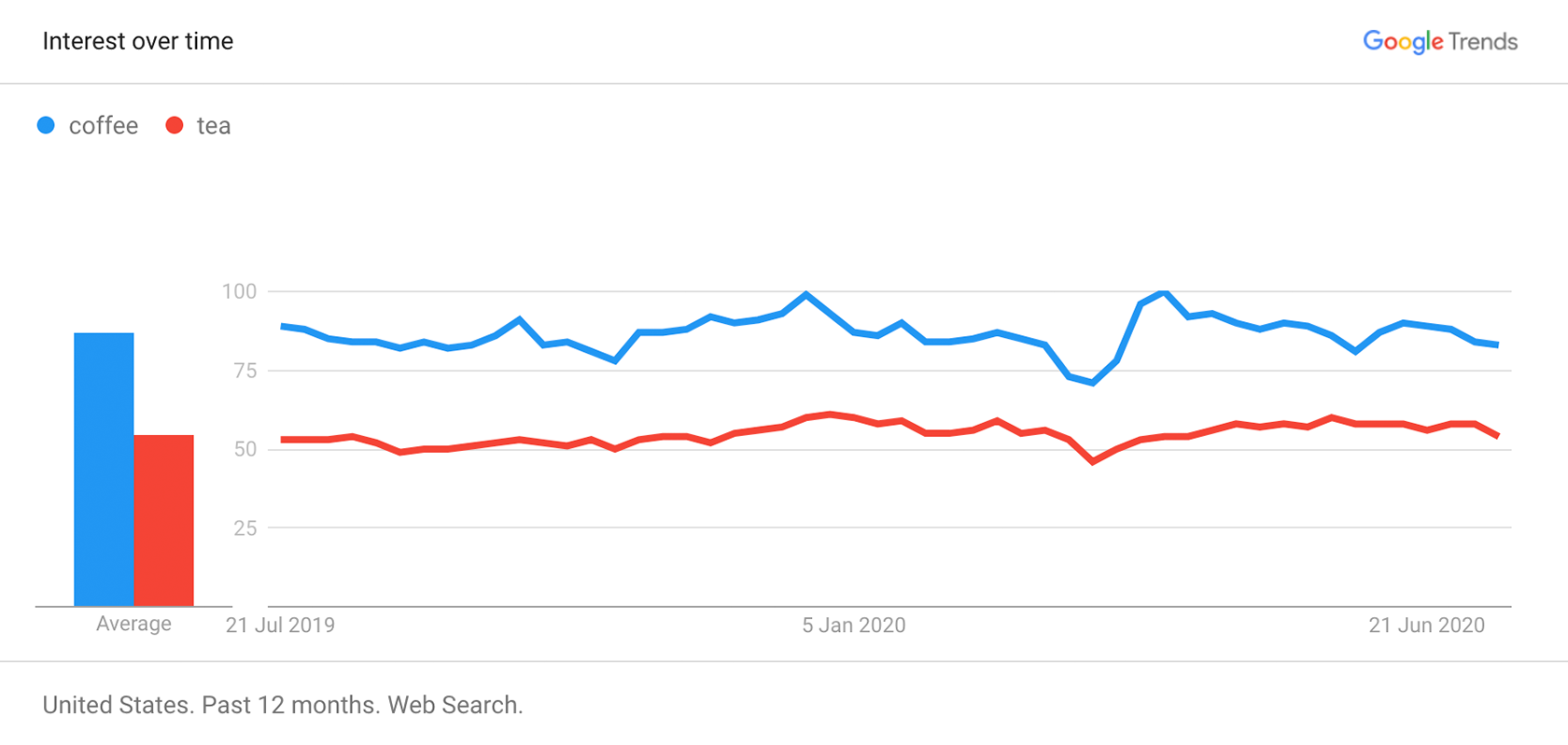Find Great Keywords Using Google Autocomplete
 Google
Google
Trusted By


















What is Google Keyword Planner?
Google Keyword Planner is a keyword search and ad planner tool within Google Ads that helps advertisers find keywords for ad targeting. With Google Keyword Planner you can find keyword ideas, search volumes, Google Ads competition, and cost-per-click (CPC) data for search terms.
Google Keyword Planner is not available for free. To use Google Keyword Planner, you need to create a Google Ads account and spend money on advertising.
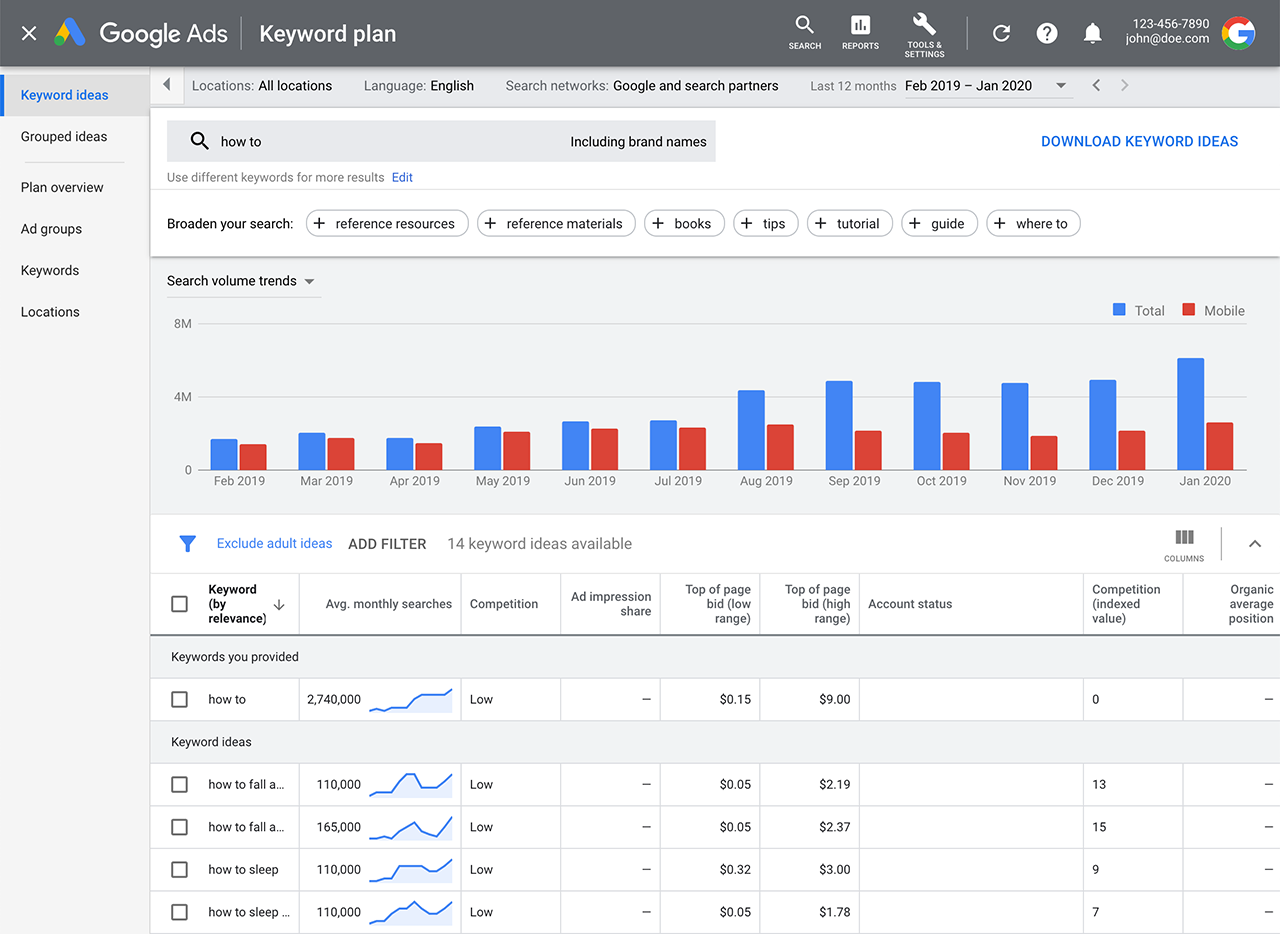


How to Use Google Keyword Planner?
While Google will not directly charge you for using Keyword Planner, you will not be able to use Google Keyword Planner for free. The costs are indirect - to use the Google tool you have to spend money on Google Ads.
Before you can access Google Keyword Planner you need to complete the following steps:
- Create a Google Ads account
- Connect billing method to Google Ads (usually your credit card)
- Start a Google Ads campaign
- Keep the campaign running and make sure it spends money
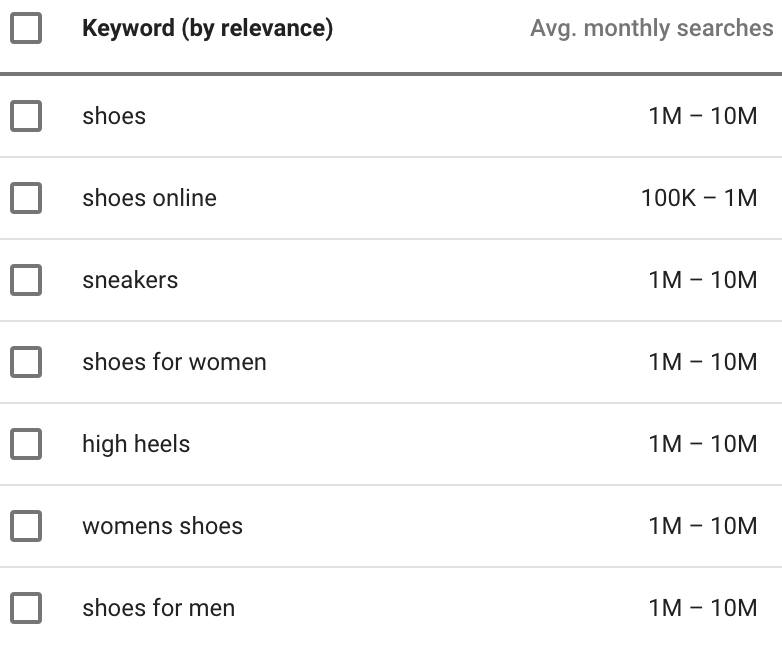
If you would like to see the search volume data for keywords in Google Keyword Planner, you will need to continue running campaigns on Google Ads and likely spend the equivalent of hundreds or thousands of US dollars per months on Google Ads.
If, for some reason, Google decides that you are not spending enough money on ads, the precise search volume data in Keyword Planner will be replaced with search volume ranges.
In order to get continuous access to Google Keyword Planner with precise search volume data for keywords, you will need to maintain the Google Ads spend.
It is important to note that if you stop spending money on Google Ads, you will likely only see limited keywords data in Google Ads Keyword Planner and even risk losing access to it.
The Best Google Keyword Planner Alternatives
Even if you spend money on Google Ads and have full access to Google's own keyword research tool, you might want to consider some of its alternatives.
Keyword Planner is created to find keywords for ads and does not display popular long tail keyword suggestions. In fact, it hides many valuable keywords that can be easily found when using some of the free Keyword Planner alternatives listed below.
-
Google Trends
Google Trends is a great free product created by Google that helps to find the relative popularity of keywords. It is an excellent alternative to Keyword Planner for keyword popularity comparison. With Google Trends, you can see how interest and the relative number of searches for a keyword changes over time.
Using Google Trends, you can also see the relative popularity of a keyword in a given country or region. The tool allows you to compare the relative popularity of up to 5 different keywords at the time.
For example, on the graph from Google Trends below, you can see the relative popularity of "coffee" versus "tea" over the last twelve months in the US.
The downside of Google Trends is that it only shows the popularity of the keywords on a scale from 0 to 100. Unfortunately, it does not show the actual number of searches that the keyword receives.
-
Google Suggest
Google Suggest is a core feature of Google search that shows different search terms when you start typing a keyword into the search box. This feature is a good alternative to Google Keyword Tool Planner for long tail keyword research.
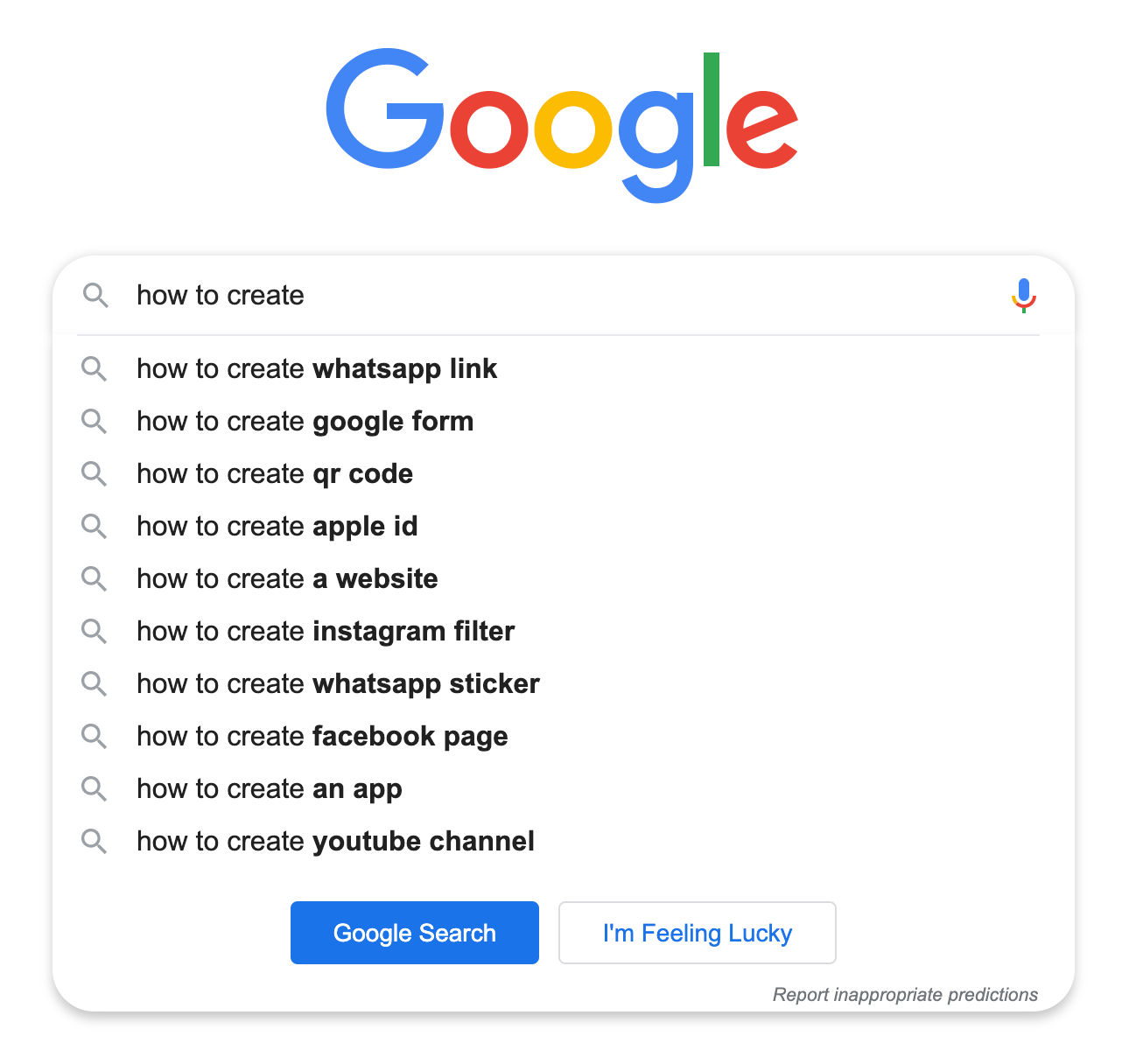
In fact, Google Suggest is the best way to find good long tail keywords that people use to find information on Google. Google admits that while Google Autocomplete (another name for the Google Suggest feature) was not designed specifically for marketing, it can deliver meaningful insights and help stay on top of trends. There are also many clever ways to use Google Autocomplete that can help you with SEO.
To use Google autocomplete, type a keyword into the search box of Google and add a letter or number before or after the term. You will then see a list of search terms and keyword suggestions below the search bar.
While the keywords received from Google Suggest are certainly useful, you can not easily copy, export or analyze them in bulk.
-
Keyword Tool
Keyword Tool is the best alternative to Google Keyword Planner for one simple reason - it is specially made to extract thousands of useful keywords from Google Suggest in a split of second.
Since Google Keyword Planner is part of the Google Ads product, you can not use Keyword Planner if you do not have a Google Ads account and are not paying for ads.
On the other hand, Keyword Tool is a free alternative to Google Keyword Planner for search engine optimization (SEO). To use Keyword Tool, you do not need to create an account or pay money.
Simply type in a word in the search box of Keyword Tool, press "Enter" and the tool will immediately pull hundreds or even thousands of great long tail keyword suggestions for your seed keyword.
Keyword Tool gets keywords directly from Google Autocomplete. That is why with Keyword Tool you will be able to find keywords that are hidden in Google Keyword Planner.
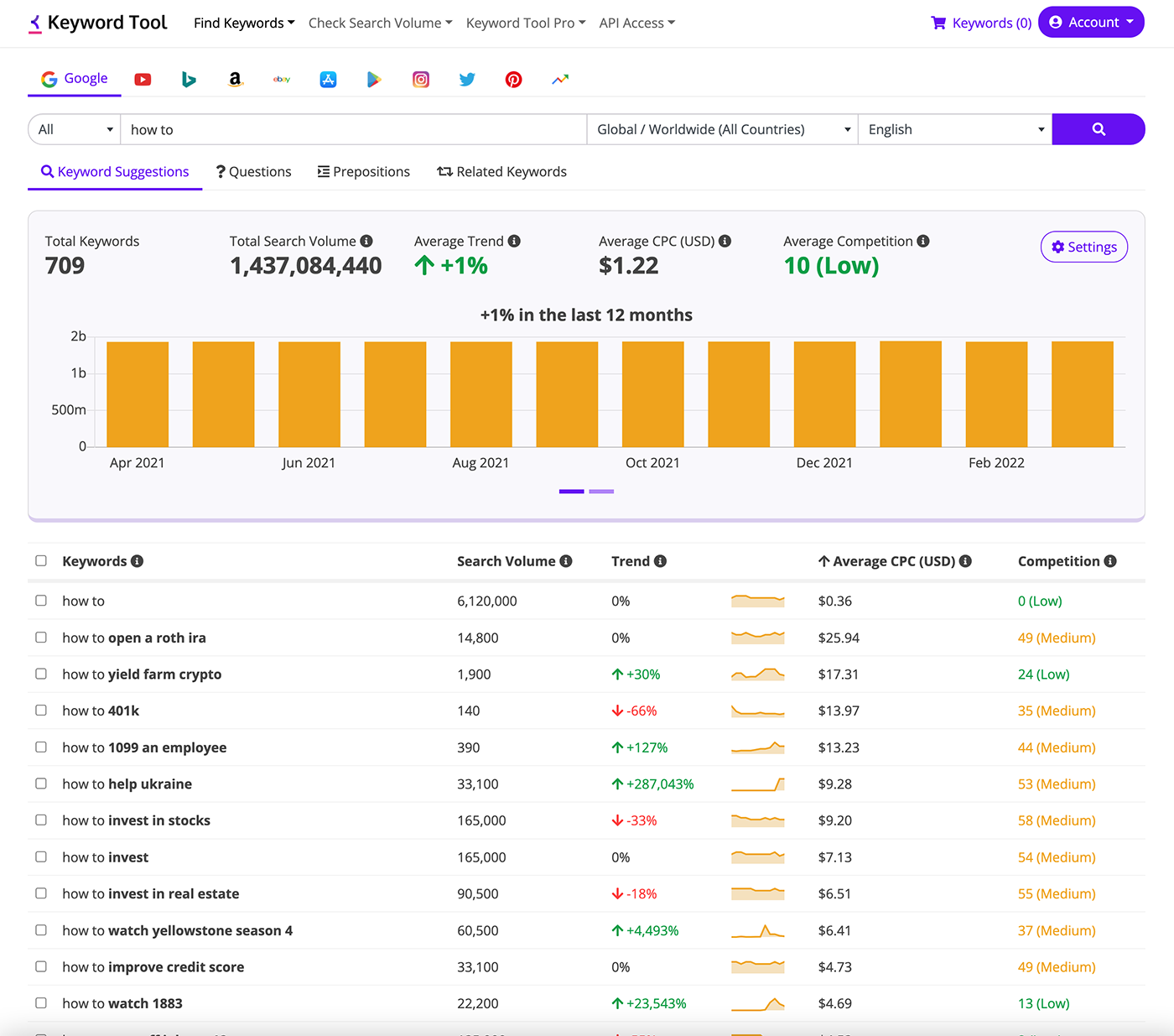

Featured On The World's Leading Publications And Websites

Keyword Tool uses Google Autocomplete to generate a list of relevant, long-tail keyword suggestions. This tool can help you understand what people are searching for around your topics. For example, bloggers might use a tool like this to brainstorm blog post titles that will do well in search.

Keyword Tool is used by many leading SEO's to find long-tail and related keywords. Relying on Google's autocomplete feature, it gives you quick access to popular search terms that you may not think to search for in Google's Keyword Planner.

The first place to start is with long-tail research and this can be done with the help of a number of tools. My first choice, however, is always KeywordTool.io.

KeywordTool.io: This long-tail keyword research tool can provide thousands of keyword suggestions from real user queries.

Just like on the web, focus on relevancy and search volume. Do an exhaustive research on your keywords using the Keyword Tool.

Keyword Tool: This is a tool where you can test keyword popularity.
Frequently Asked Questions
Start Using Keyword Tool Now
Find Keywords




























